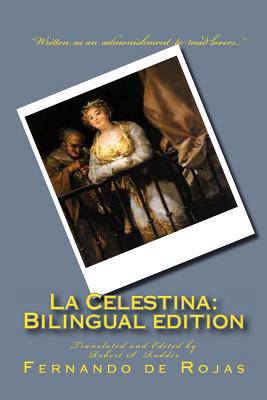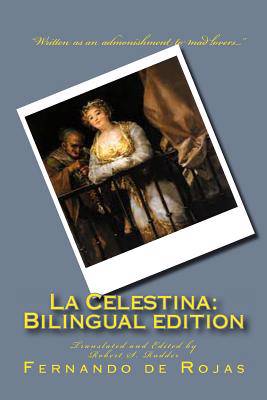
Bedankt voor het vertrouwen het afgelopen jaar! Om jou te bedanken bieden we GRATIS verzending (in België) aan op alles gedurende de hele maand januari.
- Afhalen na 1 uur in een winkel met voorraad
- In januari gratis thuislevering in België
- Ruim aanbod met 7 miljoen producten
Bedankt voor het vertrouwen het afgelopen jaar! Om jou te bedanken bieden we GRATIS verzending (in België) aan op alles gedurende de hele maand januari.
- Afhalen na 1 uur in een winkel met voorraad
- In januari gratis thuislevering in België
- Ruim aanbod met 7 miljoen producten
Zoeken
Omschrijving
In 1492 Christopher Columbus sailed west and stumbled upon an unknown continent that came to be called America. Seven years later The Comedia of Calisto and Melibea (or as it later became known, La Celestina) was published in Spain, and instantly became a national best seller. More than sixty editions appeared during the following century, and the work became so popular that, as one scholar has said: "There could have been no one who was capable of reading who did not read La Celestina." La Celestina, published anonymously in 1499, in later editions revealed the author as one Fernando de Rojas, a descendant of Jewish converts to Christianity and student at the University of Salamanca, who tells us that he "found" the first act and completed the rest of it during fifteen days of vacation from his studies. It first appeared with sixteen acts, and later with twenty-one, the additional acts being written at the request of the author's friends. Rojas finished his studies and became a lawyer in the nearby town of Talavera. He married, had several children, eventually became Lord Mayor of the town, and died in 1541. To our knowledge he never wrote another work. This novel, written in dialogue form, is considered one of the great masterpieces of Spanish literature. Composed during the rich flowering of the Renaissance, La Celestina contains not only references to figures of Greek and Roman culture, but also shows the influence of courtly literature. Alongside this, and towering over this, is a plot that carries with it tragedy of the type found later in Romeo and Juliet, along with ribald comedy. There is, for instance, the hilarious scene where the shy servant, Parmeno, addresses the prostitute, Areusa, with courtly phrases: "My lady, God keep your charming presence." And she replies in the same tone: "Gentle Sir, I bid you welcome." All this just before he hops into bed with her. Later the stable-boy, Sosia, acts much the same way with this same prostitute that he sees as a very beautiful woman. He describes his meeting with her: "bless me but I was ready to give it to her two or three times. Except that I was overcome with shame... When she moved around, she gave off a smell of musk perfume, while I stank of the manure I had on my shoes." Centurio, the cowardly braggart, explains to the girls the entire "repertoire" of swordplay ("seven hundred and seventy types of death") that he could use to take revenge on Calisto, and as soon as they leave, he finds a way to do nothing at all. And then come the tragic elements that begin with the murder of Celestina, the beheading of Calisto's servants, the accidental death of Calisto, and Melibea's speech to her father before she leaps to her own death on the stones below. La Celestina was almost immediately translated into French, Italian, German, English and Latin. The success of this work has continued down to the present day, with new translations appearing in Czech, Croatian, Hebrew, Dutch, Hungarian, Polish, Portuguese, Romanian and Russian during just one twenty-five year period in the twentieth century. The present edition gives the text in Spanish and in English on facing pages. The Spanish text is based on the orthography of the printings of Burgos, 1499, Toledo, 1500, and Valencia, 1514, and is richly illustrated with woodcuts taken from those early editions. Included are endnotes explaining the copious proverbs and classical references found interspersed throughout the text.
Specificaties
Betrokkenen
- Auteur(s):
- Uitgeverij:
Inhoud
- Aantal bladzijden:
- 450
- Taal:
- Engels
Eigenschappen
- Productcode (EAN):
- 9780692369555
- Verschijningsdatum:
- 17/01/2015
- Uitvoering:
- Paperback
- Formaat:
- Trade paperback (VS)
- Afmetingen:
- 152 mm x 229 mm
- Gewicht:
- 653 g

Alleen bij Standaard Boekhandel
+ 56 punten op je klantenkaart van Standaard Boekhandel
Beoordelingen
We publiceren alleen reviews die voldoen aan de voorwaarden voor reviews. Bekijk onze voorwaarden voor reviews.









